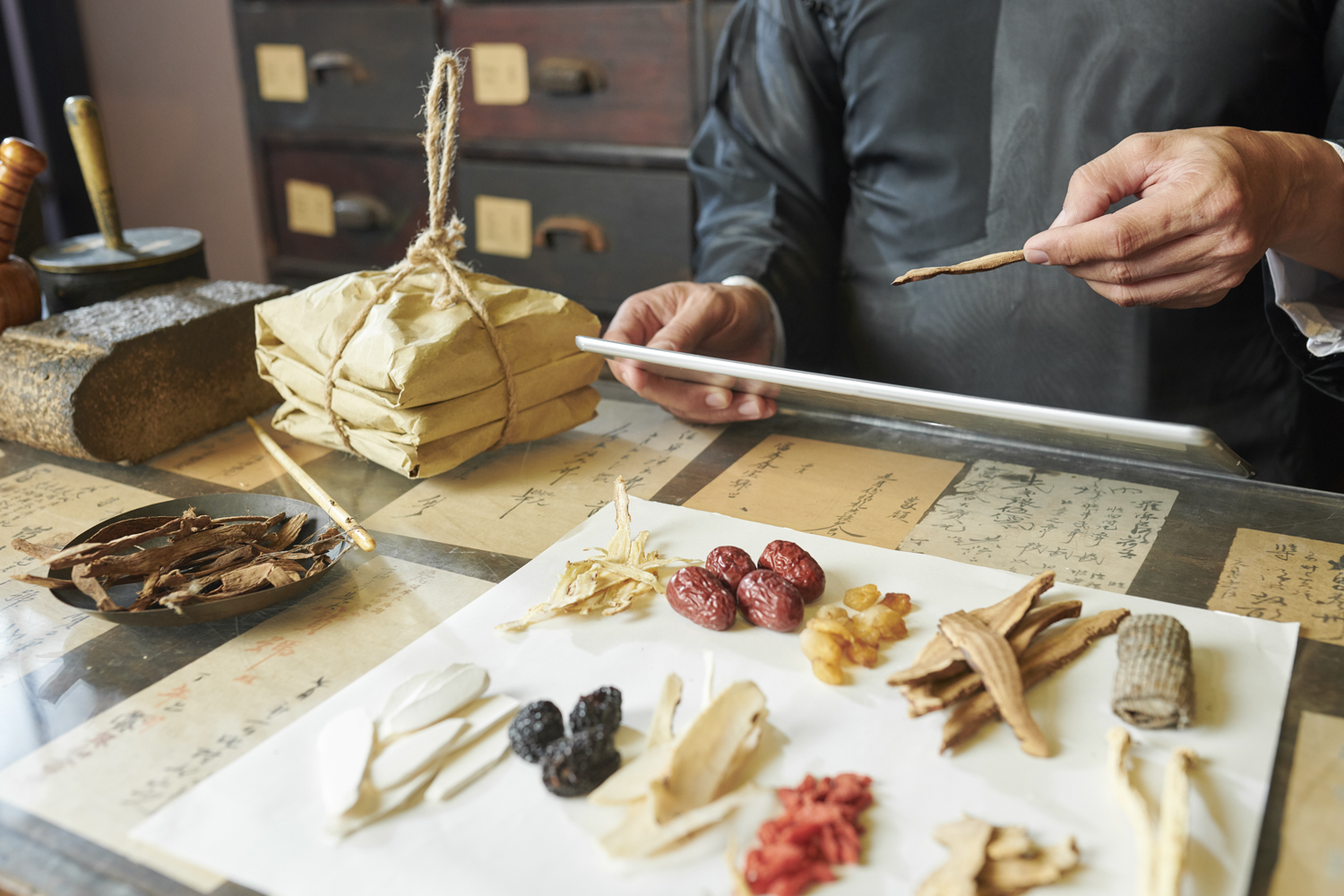Traditional Chinese Medicine (TCM) practitioners have treated patients with herbs for centuries, alongside acupuncture and Qi gong disciplines. The health benefits of these herbs and plants are so compelling that they have reached beyond Chinese medicine’s boundaries and into contemporary naturopathy. Even some traditional MDs are beginning to recognize the benefits of these herbs and plants to bring relief to their patients.
While you may think of herbs as being benign and harmless to take, it is best to consult with a professional Clinical Nutritionist or Herbalist for best results and safety.
The History of Chinese Herbs
Traditional Chinese Medicine originates from the Shang Dynasty, which existed between the 11th and 14th centuries. The Shang people believed that illness and disease were curses from their ancestors.
The Yellow Emperor’s Inner Canon is the most ancient compilation of Chinese Medicine. This document is primarily used to make diagnoses based upon the relationship between human health and the cosmos. A second volume, known as the Treatise on Cold Damage Disorders and Miscellaneous Illnesses, grouped symptoms into patterns for physicians to identify and prescribe treatments.
9 Common Herbs Used in Chinese Medicine
- Dang Gui can relax muscles and is also a potent fertility drug. Dang gui can positively treat heart-related ailments such as irregular heartbeat, high blood pressure, and angina.
- Mushrooms are currently enjoying mass popularity due to their high nutrition value and low caloric content. The Chinese have traditionally used about one-quarter of the 200 species of mushrooms to support overall good health, aid in female sexual dysfunction, and treat insomnia. Some mushrooms are known to have the capability to fight and destroy tumors.
- Goji (wolfberry) is a treasured herb in the Chinese tradition, used both for cooking and a wide range of medicinal purposes. Goji berries are popular in health food stores across the United States. Goji berries are high in antioxidants, fight free radicals, and help with digestion.
- Ginseng is most often used in the West for high blood pressure and hepatitis. Traditionally it has been used to treat erectile dysfunction, menopause issues, and it is believed to have aphrodisiac qualities.
- Coptis chinensis (Chinese goldthread) is a very bitter-tasting herb used to treat digestive tract diseases.
- Licorice root is an essential staple of Chinese Medicine. It is known to have powerful healing and detoxification properties and can be used for a wide variety of illnesses. These include cold, flu, and cough, as well as asthma, hepatitis, heartburn, and depression. It is also used to harmonize other medicinal ingredients in a tonic.
- Ginger is often used as a spice, as this herb adds aromatic flavor and taste. Medicinally, it can cure indigestion, improve blood flow, treat cardiac issues, and stop diarrhea. Many people use ginger at home to make homemade treatments for the common cold, nausea, and coughing.
- Bupleurum is not a household name like ginger, but it is one of the most vital herbs in Chinese Medicine. It is used for the treatment of liver disease, arthritis, ulcers, and mental disease.
- Astragalus has been used as an immunity tonic in Chinese Medicine for 4000 years. In addition to being an immunity booster, it helps with metabolism rate and digestion. But that’s not all – astragalus also helps to heal wounds and injuries and avoid infection.
These are only 9 of the fantastic array of herbs and plants that can heal the body naturally.
Chinese Herbal Medicine is a natural way to heal your body that has been tested and proven for thousands of years. For more information, call Longevity Wellness Clinic in Sarasota at (941) 841-0599.



